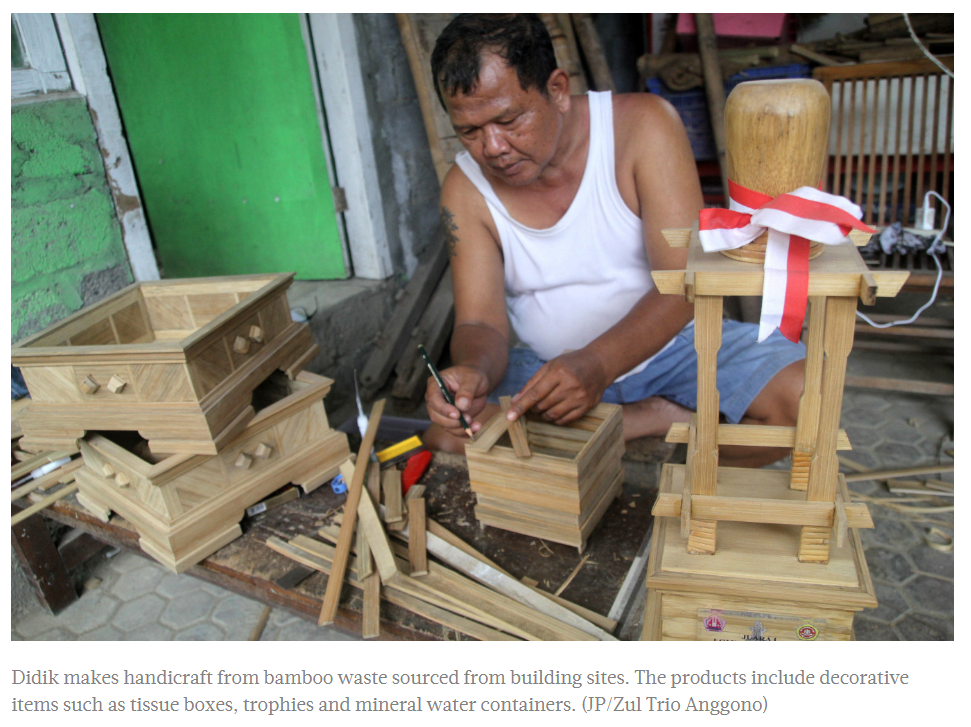Indonesia: Ministry wants to increase SMEs role in big business supply chains
The Industry Ministry is seeking to increase the role of small and medium enterprises (SME) in supplying raw materials for big businesses, as the government wants to reduce reliance on imported goods.
A program that runs from July 1-15 aims to prepare selected SMEs by helping them with brand registration, packaging as well as with National Industrial Standards (SNI) and halal certification to meet big producers’ product standards, according to Gati Wibawaningsih, the ministry’s director general of small and medium enterprises.
“The message this program is trying to convey is that local industries can produce what Indonesians need with quality products,” Gati said in a virtual press conference on Wednesday.
The program is part of the government’s efforts to increase the role of small businesses, which contributed nearly 61 percent to the country’s economy, to help reduce big industries’ imports of raw materials and intermediate goods.
The ministry has set itself a target of slashing Indonesia’s raw material imports by up to 35 percent to US$82 billion in 2022.
Imports of raw materials and intermediary goods declined last year and during this year’s January-to-May period, signaling a cooling of manufacturing activity and household spending. Last year, imports totaled $125.9 billion, down more than 11 percent from 2018, Statistics Indonesia (BPS) data show.
The program would also champion SMEs products through e-commerce platforms, including packaged food and beverages, fashion, healthcare products and sport equipment.
Meanwhile, food manufacturing giant PT Indofood Sukses Makmur sourced tempeh, a fermented soybean product, as the main ingredient of its chips brand Qtela from a small enterprise, said Stefanus Indrayana, the firm’s general manager of corporate communication.
Stefanus said Wednesday that, with the partnership, the small enterprise had gradually scaled up its production from 50 kilograms of tempeh per day to 1 ton.
“Our partner has good products,” said Stefanus. “But we require certain standards, such as SNI. So we do a lot of mentoring, including for halal certificates, waste management, administrative matters and technical tools.”
But not all companies have the flexibility to source their raw materials from small businesses at home, like bicycle manufacturer PT Insera Sena, which sells Polygon bicycles.
Although it uses local tires, some components to make Polygon bicycles require a high precision, prompting the company to buy those from foreign suppliers, Insera Sena director William Gozali said.
“Some of our components are made in Indonesia, but there are critical components that we have to import,” said William.
Source: https://www.thejakartapost.com/news/2020/07/01/ministry-wants-to-increase-smes-role-in-big-business-supply-chains.html


 Thailand
Thailand




